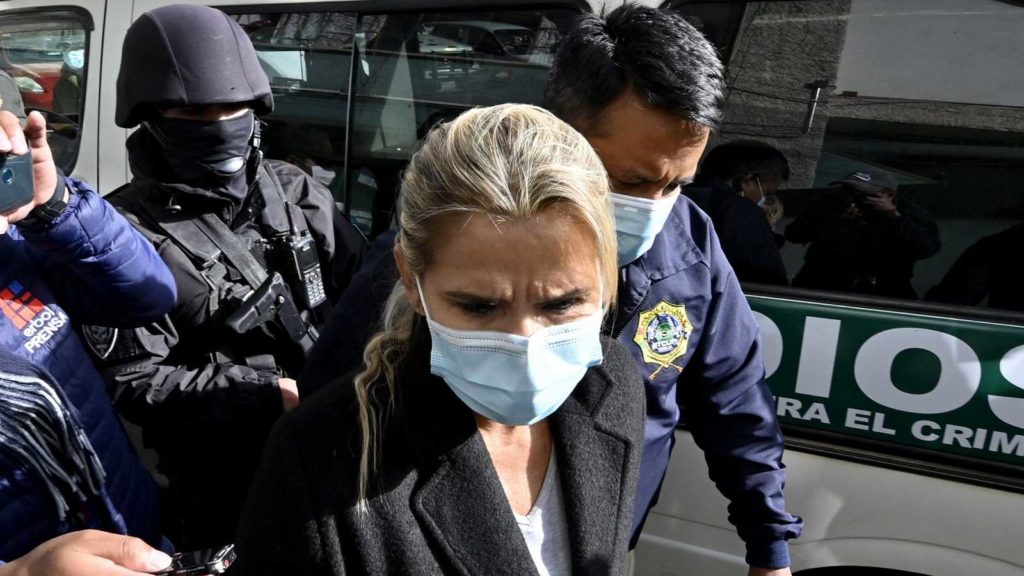RIO DE JANEIRO, BRAZIL – A judge denied this Tuesday (7) the freedom request of the former interim president of Bolivia Jeanine Áñez, who is about to serve nine months of imprisonment on charges of sedition and terrorism, among other crimes, for which she declared herself “politically persecuted”.
The decision was issued by the Seventh Court of Instruction of La Paz after a telematic hearing that lasted several hours and in which the defense counsel of the former interim president objected to the accusations of the first process called “coup d’état” under which her imprisonment was ordered since March 13.
Read also: Check out our coverage on Bolivia
During the court hearing, Áñez took the floor to affirm that the government of President Luis Arce “blatantly lied” during a meeting of the UN Committee against Torture (CAT) in Geneva, last November 25 and 26, in which it was asserted that she was not imprisoned for crimes such as sedition and terrorism.

Áñez pointed mainly to the Vice Minister of Justice and Fundamental Rights, César Siles, for indicating that she was imprisoned for breach of duties and resolutions against the Constitution when this process, according to the former president, was “unfolded” or detached from the first accusation.
In that meeting, the CAT rapporteur, Claude Heller, observed the application of the charges of sedition and terrorism that the interim government of Áñez and the current administration of Arce assumed and considered “fundamental” to face a judicial reform and review the application of those criminal charges.
These accusations were applied both against the government of Evo Morales, and that of Áñez, said Heller on that occasion.
Áñez, in the hearing, said that a “legal aberration” was being committed against her and defined herself as a “political prisoner” of the government by the ruling Movement Towards Socialism (MAS) party.
The former head of state was preventively imprisoned in March, initially accused of sedition, conspiracy, and terrorism due to a complaint filed by a former MAS deputy for the events of the 2019 crisis.
A first judicial determination established that Áñez would be held for four months, but then the term was extended to six when Áñez requested her freedom and then for another six months when charges were opened for breach of duties and resolutions against the Constitution in the “coup d’état II” case.
The Bolivian government considers that Áñez came to power through a “coup d’état” and not by Constitutional succession as it argues that this did not correspond to her despite her condition as the second president of the Senate, after Morales’ resignation and the massive resignation of the authorities in line of succession.
In addition to these cases, there are several accusations in Parliament regarding acts committed during her administration, one of them for the death of at least twenty civilians at the hands of the Army in the so-called massacres of Sacaba, in Cochabamba, and Senkata, in El Alto.

